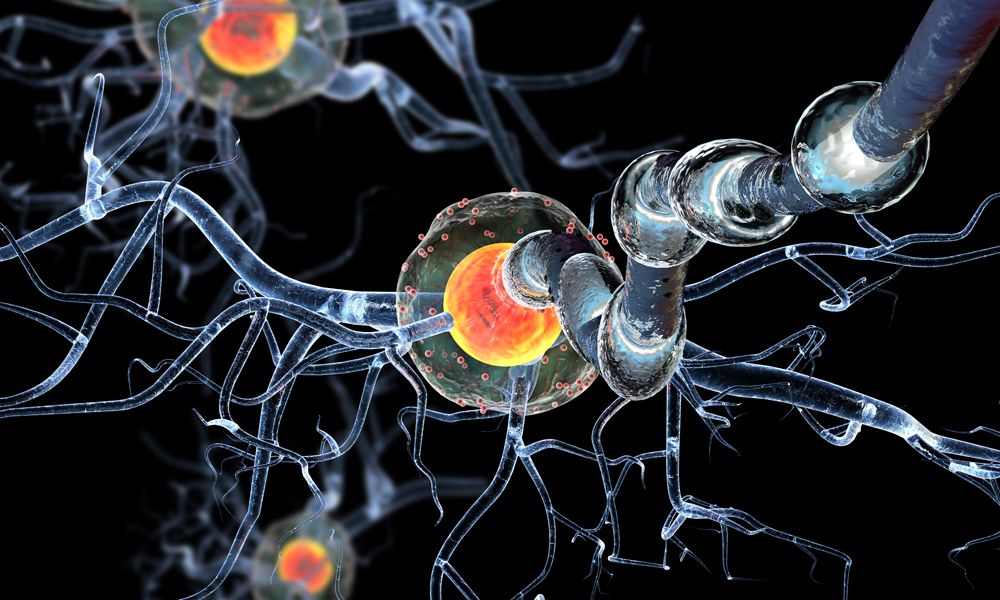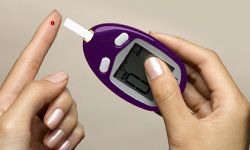
What does “autoimmune system disease” mean, and how is it different from a regular disease?
Autoimmune disease refers to disorders that occur when the body’s immune system attacks and destroys healthy cells of the body itself. These differ from other diseases in which the immune system attacks and destroys foreign antigens such as bacteria or viruses.
The immune system of the human body relies on specific types of white blood cells for protection against foreign or deleterious substances such as bacteria, viruses, toxins, malignant cells and cells originating outside of the body, explains MedlinePlus. One component of these substances is called an antigen, meaning that the immune system generates an antibody as a reaction against it. These antibodies then attack and destroy the offending cells.
In the case of autoimmune disease, the body’s immune system fails to distinguish between these antigens and the healthy cells of the body itself, states MedlinePlus. A reaction occurs in which normal, healthy cells are destroyed by the immune system intended to protect them.
More than 80 types of autoimmune disorders exist, including Addison’s disease, Graves’ disease, multiple sclerosis, pernicious anemia and rheumatoid arthritis, according to MedlinePlus. In addition to destroying body tissues, autoimmune disorders cause abnormal growth of body organs and changes in their functioning. There is no known cure for autoimmune disease, we have programs designed to reduce the abnormal functioning of the immune system.
What are some of the most common autoimmune diseases?
The following are some of the more common autoimmune diseases:
- rheumatoid arthritis: inflammation of joints and surrounding tissues
- systemic lupus erythematosus: affects skin, joints, kidneys, brain, and other organs
- celiac sprue disease: a reaction to gluten (found in wheat, rye, and barley) that causes damage to the lining of the small intestine
- pernicious anemia: decrease in red blood cells caused by inability to absorb vitamin B-12
- vitiligo: white patches on the skin caused by loss of pigment
- scleroderma: a connective tissue disease that causes changes in skin, blood vessels, muscles, and internal organs
- psoriasis: a skin condition that causes redness and irritation as well as thick, flaky, silver-white patches
- inflammatory bowel diseases: a group of inflammatory diseases of the colon and small intestine
- Hashimoto’s disease: inflammation of the thyroid gland
- Addison’s disease: adrenal hormone insufficiency
- Graves’ disease: overactive thyroid gland
- reactive arthritis: inflammation of joints, urethra, and eyes; may cause sores on the skin and mucus membranes
- Sjögren’s syndrome: destroys the glands that produce tears and saliva causing dry eyes and mouth; may affect kidneys and lungs
- type 1 diabetes: destruction of insulin producing cells in the pancreas
What causes the immune system to attack healthy cells?
The cause of autoimmune disease is unknown. There are many theories about what triggers autoimmune diseases, including:
- bacteria or virus
- drugs
- chemical irritants
- environmental irritants
Also, you may be more susceptible to developing an autoimmune disease if you have a family member with one.
What are the symptoms of an autoimmune disease?
Because there are so many different types of autoimmune disease, the symptoms vary. However, common symptoms are fatigue, fever, and general malaise (feeling ill). Symptoms worsen during flare-ups and lessen during remission.
Autoimmune diseases affect many parts of the body. The most common organs and tissue affected are:
- joints
- muscles
- skin
- red blood cells
- blood vessels
- connective tissue
- endocrine glands
How are autoimmune diseases diagnosed?
Ordinarily, your immune system produces antibodies (proteins that recognize and destroy specific substances) against harmful invaders in your body. These invaders include:
- viruses
- bacteria
- parasites
- fungi
When you have an autoimmune disease, your body produces antibodies against some of your own tissues. Diagnosing an autoimmune disease involves identifying the antibodies your body is producing.
The following tests are used to diagnose an autoimmune disease:
- autoantibody tests: any of several tests that look for specific antibodies to your own tissues
- antinuclear antibody tests: a type of autoantibody test that looks for antinuclear antibodies, which attack the nuclei of cells in your body
- complete blood count: measures the numbers of red and white cells in your blood; when your immune system is actively fighting something, these numbers will vary from the normal
- C-reactive protein (CRP): elevated CRP is an indication of inflammation throughout your body
- erythrocyte sedimentation rate: this test indirectly measures how much inflammation is in your body
How are autoimmune diseases treated?
Autoimmune diseases are chronic conditions with no cure. Treatment involves attempts to control the process of the disease and to decrease the symptoms, especially during flare-ups. The following is a list of things you can do to alleviate the symptoms of an autoimmune disease:
- eat a balanced and healthy diet
- exercise regularly
- get plenty of rest
- take vitamin supplements
- decrease stress
- limit sun exposure
- avoid any known triggers of flare-ups
- repair abnormal physiology

